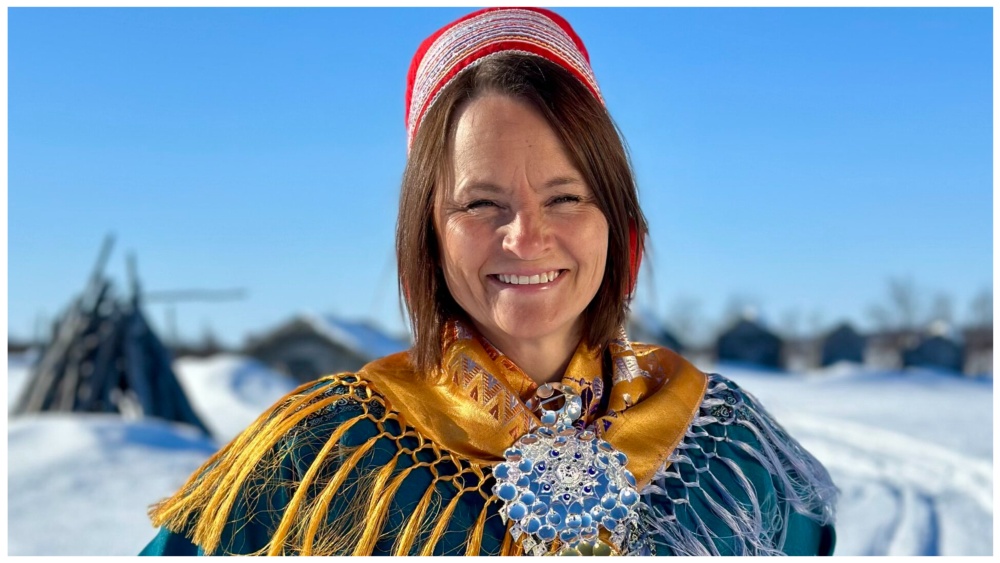
International Sámi Film Institute’s managing director Anne-Lajla Utsi will now add “trailblazer” to her résumé as the recipient of the first-ever Women in Film and Television International Peace Prize.
The award ceremony will take place on Sept. 23 during the WIFTI Helsinki Summit.
The same week, WIFT Finland will present its digital “Equality Tool” for the film and TV industry to the participants at the Finnish Film Affair.
“The goal is to give this prize to someone who is a good ambassador for values that embrace inclusion, sustainability and peace,” says Helene Granqvist, outgoing WIFTI president. She added that Utsi will be awarded for her “amazing and tireless” commitment to spreading Sámi stories around the world. “Her work symbolizes the very core of the WIFTI Peace Prize.”
“As Indigenous people in the Nordic countries, we had to deal with hard assimilation policies, trying to erase our language, culture and identity. These policies are still casting shadows today,” Utsi tells Variety.
“It’s a big question for all of us: Are we going to reconcile? And what does that even mean? I guess it means moving forward from a painful past and building something better. Film, and all art, plays a big part in this peace work. It allows us to understand and love each other better.”
“Arru”
Courtesy of Mer Film
“We have to hold onto hope,” she adds.
With Sámi stories present at some of the biggest festivals, including Toronto offerings Katja Gauriloff’s “Je’vida,” Sara Margrethe Oskal’s “The Tundra Within Me,” and “Homecoming” by Suvi West and Anssi Kömi, things are looking up.
“We are seeing a change. We have so many talented filmmakers making beautiful films. It means so much, because we need narrative sovereignty. We want to decide which stories to tell,” she notes.
“We collaborate with bigger companies like Netflix and NRK, but it’s not about the money. It’s about authenticity. There is strength in our film community, because there is so much at stake: our future, our people, our land. We have so much to fight for, all the time. These stories are always about life and death.”
That being said, Sámi filmmakers are daring to leave the past behind.
“We needed to follow these painful stories and free ourselves from the trauma. But now, we have to make sure we are not lost in the past, because so much is happening today,” she says.
“Many of our films have been historical dramas, like Nils Gaup’s ‘Pathfinder’ or even Amanda Kernell’s ‘Sámi Blood.’ Now, we are starting to see more contemporary stories and different genres. We are getting comedies and horror films, films for children and animation.”
Oskar Östergren Njajta’s animation “Between Saajve and the Sky,” Egil Pedersen’s “Biru Unjárga” and Elle Sofe Sara’s “Árru,” and series “Story Hunters Sapmi,” “Siida” and “Oro Jaska” are among upcoming projects.
“We have the Arctic Indigenous Film Fund and the ‘Indigenous Witness’ program, which allows young filmmakers to make short films about climate change. It’s not just about us needing to tell our stories. The whole world needs them, because of our perspective on nature, sustainability and traditional livelihoods.”
Female filmmakers still reign supreme, however.

Katja Gauriloff’s “Je’vida”
Courtesy of The Yellow Affair
“[As the institute] we have been up and running for almost 15 years and among the directors, writers and producers that we support 70% of them are women. I don’t know where the men are. Maybe they are out hunting or reindeer herding?,” she laughs.
The WIFTI Peace Prize, funded by Granqvist and the founder of WIFT Caucasus Tsiako Abezadze – with the support of Wade Channell (Damn Fool Production) – will be awarded every second year, possibly growing into the WIFTI Peace Fund in the future.
“This prize recognizes and encourages these extraordinary women in their efforts to build a better world through the stories they tell,” says Channell, with Abezadze adding: “We, women filmmakers, stand shoulder to shoulder, capturing the beauty of life, championing not only our freedom but also the planet we call home.”














